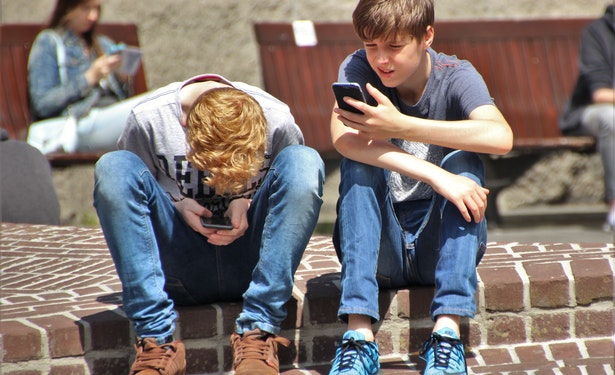Teens With Mental Health Conditions Use Social Media Differently: A Call for Understanding and Action
Date: Monday 12 May 2025
In today’s digital age, social media is a double-edged sword, especially for young males navigating the complexities of mental health. A recent study by the University of Cambridge sheds light on how adolescents with mental health conditions experience social media differently from their peers. The findings are both eye-opening and a call to action for parents, educators, and mental health advocates.

The study reveals that teens with mental health conditions, particularly those with internalising conditions like anxiety and depression, spend an average of 50 minutes more daily on social media than their peers. This extra time online is not just a matter of habit but is often tied to deeper emotional struggles. These young people are more likely to engage in social comparison, experience mood changes based on likes and comments, and feel dissatisfied with their online friend counts. For them, social media can amplify feelings of inadequacy and rejection, making an already challenging mental health journey even harder.
The Role of Social Comparison and Emotional Vulnerability
One of the most striking findings is the heightened tendency for social comparison among teens with internalising conditions. Nearly half of these adolescents reported comparing themselves to others online, a rate twice as high as their peers without mental health conditions. This behaviour mirrors their offline experiences, where feelings of inadequacy and self-doubt often dominate. Social media, with its curated highlight reels and quantifiable metrics like friend counts and likes, exacerbates these feelings, creating a cycle of emotional vulnerability.
Mood changes tied to social media feedback were also more common among this group. For a young person already struggling with anxiety or depression, a single negative comment or a lack of likes can feel like a personal failure, further eroding their self-esteem. This emotional rollercoaster underscores the need for greater awareness and support for how social media impacts mental health.
The Need for Ethical Guidelines and Tailored Support
The study’s findings highlight the urgent need for ethical guidelines and tailored support for young people with mental health conditions. Social media platforms must take responsibility for creating safer online spaces. This includes implementing features that reduce the emphasis on metrics like likes and friend counts, promoting positive interactions, and providing resources for mental health support.
Parents and educators also play a crucial role. Open conversations about social media use, setting healthy boundaries, and encouraging offline activities can help mitigate its negative impact. For teens (and adolescent males especially) with mental health conditions, these interventions are not just helpful—they are essential.
A Call for More Research and Systemic Investment
While this study provides valuable insights, it also underscores the need for more research. As Dr Amy Orben, one of the study’s authors, points out, the interplay between social media use and mental health is complex and multifaceted. To truly understand its impact, we need large-scale, high-quality studies that explore how different types of content and activities affect young people with various mental health conditions.
At Brothers in Arms, we recognise the importance of early intervention and tailored support. Our flagship platform, Blethr, is designed to provide a safe space for younger males (from 13 plus with parental guidance) to explore their emotions and mental wellbeing. For teen males struggling with the challenges highlighted in this study, Blethr can serve as a digital buddy, offering guidance and support as they navigate their online and offline worlds.
Moving Forward Together
The findings from this study are a stark reminder of the challenges young people face in the digital age, particularly those with mental health conditions. But they also present an opportunity for change. By fostering understanding, promoting ethical practices, and investing in research and support, we can create a world where social media becomes a tool for connection and growth rather than a source of harm.
Read more about the study here: https://neurosciencenews.com/teens-mental-health-social-media-28823/
If you or someone you know is struggling with the impact of social media on mental health, consider exploring the resources available through Brothers in Arms. Together, we can break the stigma, provide support, and empower young people to thrive in both their online and offline lives.
For more insights and support, visit Blethr https://bia.blethr.app/ or explore our article on 'Using Social Media to Improve Your Mental Health' here: https://www.brothersinarmsscotland.co.uk/mens-wellbeing-advice/using-social-media-to-improve-your-mental-health/.
Want to learn more about adolescent male mental wellbeing? chat with BraveheartGPT below.

